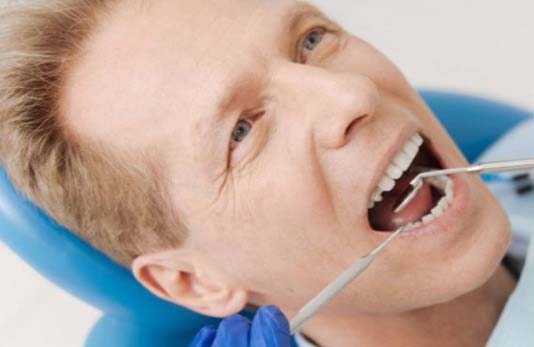Quit smoking for a healthier smile

Few people start smoking with the intent to get hooked on cigarettes. Often, smokers try their first cigarette to fit in with friends or family members who smoke. But chronic smoking can have devastating effects on your body, including your mouth.
How smoking affects your oral health
While most people are aware of the negative impact that smoking could have on their overall health, many don’t know how it affects their oral health.
In addition to contributing to gum disease, smoking can increase your risk for many other oral health problems, including:
- Mouth pain and cavities
- Tooth loss (twice that of non-smokers)
- Infected tooth root (twice that of non-smokers)
- Slower healing of gum tissue after oral surgery or from injury
- Reduced effectiveness of gum disease treatments
- Oral cancer
But how does this happen? The chemicals in tobacco smoke damage the tissue in your mouth and throat, and that damage gives bacteria an easy way to infect you. Smoking also weakens your body’s ability to fight off infections, including infections in your gums.
How to quit smoking
The good news is that the risk of gum disease, tooth loss and many other oral health problems decreases after you quit smoking.
If you’d like to quit smoking, there are a variety of methods you can try.
- Cold turkey. Stopping all tobacco usage at once with no assistance is a popular method, however it’s less likely to result in a successful attempt.
- Gradual withdrawal. Using this method means slowly phasing out cigarettes over time to help reduce your dependency on them. It can help lessen the effects of withdrawal and is more successful than cold turkey.
- Prescription drugs. Medication that treats nicotine addictions works by stimulating the same parts of your brain that nicotine does. This reduces the pleasurable feelings you get from smoking and the symptoms of withdrawal.
- Nicotine replacement therapy. There are many options of gums, lozenges, sprays and inhalers that work by replacing some of the nicotine you get from cigarettes.
- Counseling and support groups. Did you know you’re more likely to quit smoking entirely if you have a support group? One-on-one therapy and support groups help you stay accountable and deal with issues you experience during the process.
Most of these methods can be used in conjunction with others. To make sure you’re staying safe, talk to your primary care physician about what you’re doing and how it’s working.

You can do it
When you decide it’s time to quit, talk to your dentist or physician and ask them to refer you to counseling and support programs. You can also get a referral from your local hospital, health department, the American Cancer Society Quitline at 800-227-2345 or your home state’s Quitline at 800-784-8669.
Giving up smoking isn’t easy, but many people have succeeded in quitting. Soon after you stop smoking, you may notice that food tastes better, your sense of smell is more acute and you can more easily be active without getting winded. And you’ll have the satisfaction of knowing that you’re keeping your mouth — and your entire body — healthy.
Last updated April 15, 2022
Related articles:
The oral health information on this website is intended for educational purposes only. Always consult a licensed dentist or other qualified health care professional for any questions concerning your oral health.


